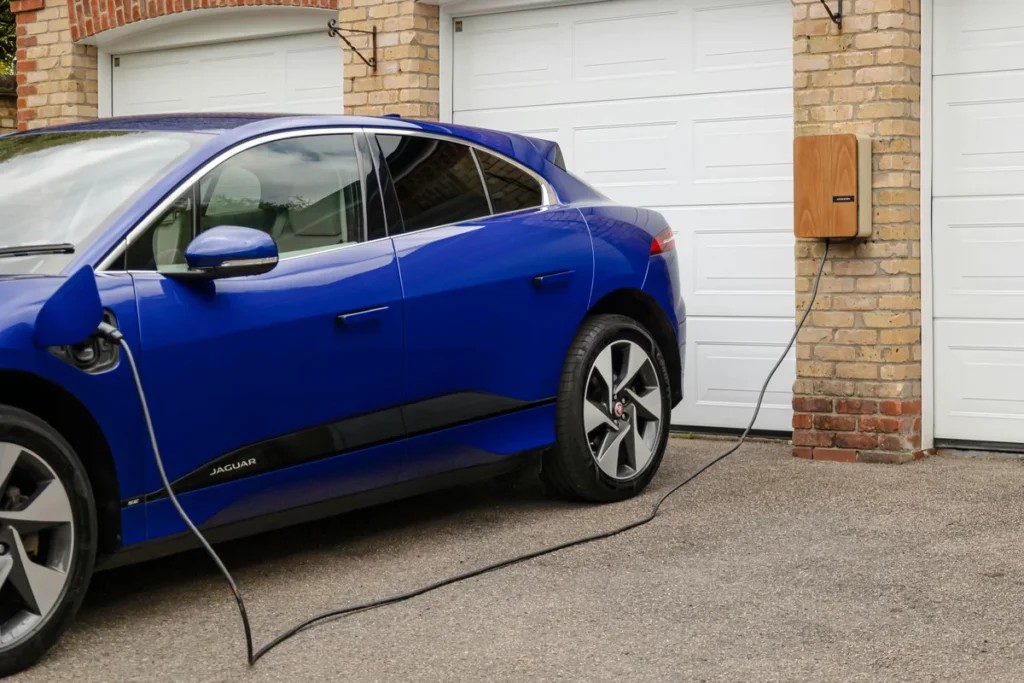How Do Electric Cars Work?

Electric cars are rapidly gaining popularity due to their efficiency, sustainability, and cost-effectiveness. But how do they work? Unlike traditional gasoline-powered vehicles, electric cars operate on electricity stored in batteries, driving an electric motor that powers the wheels… This article will break down the mechanics behind electric vehicles (EVs) and explain their benefits, challenges, and future potential.
What is an Electric Car?
An electric car is a vehicle that operates using electricity instead of gasoline or diesel. It uses an electric motor powered by rechargeable batteries, making it an eco-friendly alternative to conventional cars.
Types of Electric Cars
Battery Electric Vehicles (BEVs)
BEVs run solely on electricity. They have large battery packs that store energy and provide power to the electric motor.
Plug-in Hybrid Electric Vehicles (PHEVs)
PHEVs combine an electric motor with a gasoline engine. They can run on battery power alone for a limited range and switch to gasoline for longer trips.
Hybrid Electric Vehicles (HEVs)
HEVs use both an electric motor and a gasoline engine but do not require external charging. They generate electricity through regenerative braking and engine power.
Key Components of an Electric Car
Electric Motor
The electric motor converts electrical energy from the battery into mechanical energy to drive the wheels.
Battery Pack
The battery stores electrical energy and is typically made of lithium-ion cells.
Power Electronics
This system controls the flow of electricity between the battery and the motor.
Charging System
It includes onboard chargers, charge ports, and inverters to manage battery recharging.
Thermal Management System
This system ensures the battery and motor operate at optimal temperatures to prevent overheating.
How Electric Cars Generate Power
Electric cars store electricity in high-capacity batteries. When the car is turned on, electricity flows from the battery to the motor, converting electrical energy into mechanical energy that moves the car.
Charging an Electric Car
Types of Charging Stations
- Level 1 Charging: Uses a standard household outlet, slow charging speed.
- Level 2 Charging: Faster charging, requires a 240V outlet.
- DC Fast Charging: Ultra-fast charging at public stations.
Home Charging vs. Public Charging
Home charging is convenient but slower, while public charging stations provide faster options for long trips.
How an Electric Car Moves
Power Delivery to the Wheels
The electric motor transmits power to the wheels, ensuring instant torque and smooth acceleration.
Regenerative Braking System
When braking, the car converts kinetic energy back into stored electricity, improving efficiency.
Comparison Between Electric and Gasoline Cars
| Feature | Electric Car | Gasoline Car |
|---|---|---|
| Fuel Type | Electricity | Gasoline |
| Maintenance Costs | Lower | Higher |
| Emissions | Zero | High |
| Acceleration | Instant Torque | Delayed Response |
Benefits of Electric Cars
Environmental Benefits
EVs produce zero tailpipe emissions, reducing air pollution.
Cost Savings on Fuel
Electricity is cheaper than gasoline, reducing overall costs.
Lower Maintenance Costs
EVs have fewer moving parts, requiring less maintenance.
Challenges of Electric Cars
- Limited Charging Infrastructure: Not as widespread as gas stations.
- Battery Range Anxiety: Some drivers worry about running out of charge.
- Higher Upfront Costs: EVs can be more expensive initially.
Future of Electric Cars
With advancements in battery technology, charging infrastructure, and affordability, electric cars are set to dominate the future of transportation.
Conclusion
Electric cars are revolutionizing the automotive industry by providing an eco-friendly and cost-effective alternative to gasoline vehicles. As technology continues to evolve, EVs will become even more accessible, making them a practical choice for consumers worldwide.
FAQs
1. How long does it take to charge an electric car?
Charging time depends on the battery size and charger type, ranging from 30 minutes (DC fast charging) to 12 hours (Level 1 charging).
2. What is the lifespan of an electric car battery?
Most EV batteries last between 8 to 15 years, depending on usage and maintenance.
3. Can I charge my electric car at home?
Yes, most EV owners charge their cars at home using a standard outlet or a Level 2 charger.
4. Are electric cars more expensive to maintain?
No, EVs generally have lower maintenance costs due to fewer moving parts and no oil changes.
5. Do electric cars perform well in cold weather?
Cold weather can reduce battery performance, but modern EVs come with advanced thermal management systems to mitigate the impact.
